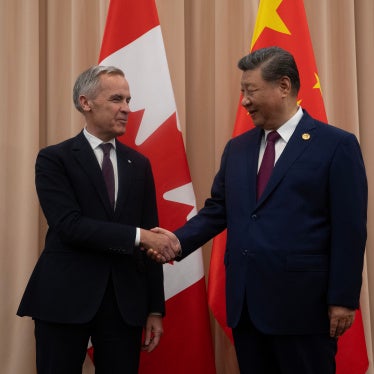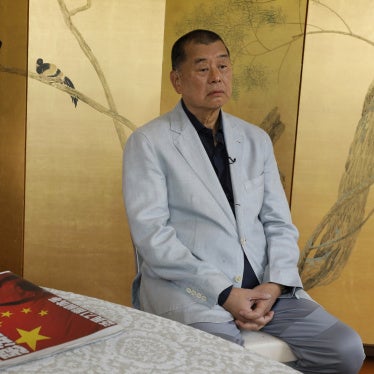On March 29, 2011 China's propaganda authorities banned independent reporting of possible radioactive contamination from Japan's stricken Fukushima Daiichi nuclear power plant. The directive restricted all media coverage to carefully vetted copy from the official Xinhua News Agency and prohibited non-Xinhua journalists from doing radiation-related reports and interviews. The directive's implication was as clear as it was chilling: the Chinese government alone would determine how much - or how little - its citizens should know about potentially dangerous radioactive fallout.
That directive - coinciding with a spike in official repression involving the arrests and disappearances of dozens of the country's most prominent lawyers, human rights defenders, and internet activists since mid-February, 2011 - was a sobering reminder of the barriers China's state censorship system creates to deny its citizens their right to information. China's journalists and estimated 457 million Internet users remain hostage to the dictates of a state propaganda system which determines the limits of acceptable content. The estimated 34 Chinese journalists currently serving prison terms for refusing to kowtow to official censors are a testament to the courage of China's reporters despite the risks.
The ongoing crackdown highlights the absurdities of a state censorship system dedicated to preserve the Chinese government's questionable narrative of national "stability" and "harmony." When Egyptian protesters spilled into Cairo's Tahir Square in January 2011 to demand democracy and respect for human rights, China's censors responded by blocking keyword searches of the word "Egypt." After anonymous online calls in early February 2011 for an Egyptian-style "jasmine revolution" in China, censors expunged the word "jasmine" from all media and Internet content.
Shamefully, foreign firms are complicit in the Chinese government ‘s censorship barriers. Despite the good example of the US search engine company Google to stop censoring searches on its http://www.google.com.cn/ site on March 22, 2010, Microsoft and Yahoo! search engines continue to obey Chinese government requirements to self-censor user's search results.
More disturbingly, the social network giant Facebook appears poised to join their ranks. Currently blocked in China, Facebook is mulling a partnership with a Chinese firm to broker a lifting of that prohibition. And there are already hints that Facebook may allow Chinese censors to dictate terms of operation as the price of China market access. A Facebook lobbyist told the Wall Street Journal in April 2011 that Facebook may "block content in some countries" due to its concerns that "now we're allowing too much, maybe, free speech in countries that haven't experienced it before."
Chinese people are entitled to the same access to information as others around the world. The Constitution of the People's Republic of China guarantees a free press and the right of freedom of expression. The Chinese government and foreign firms operating in China have an obligation to protect those rights and to remove, not build, barriers to the free flow of information.
Phelim Kine is a researcher in the Asia division of Human Rights Watch.








